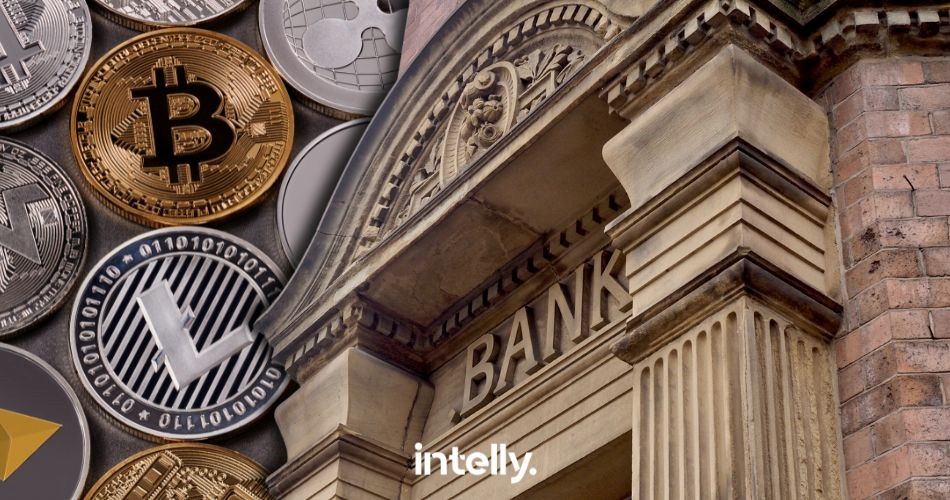Banks involving themselves in the crypto space can have several potential benefits and implications for both the traditional banking sector and the cryptocurrency industry. Here are some key points highlighting the importance of banks getting involved in the crypto space:
1. Integration of Traditional and Digital Finance:Banks entering the crypto space can facilitate the integration of traditional financial systems with the rapidly evolving digital finance landscape. This integration may provide users with more diverse financial services that combine the strengths of both worlds.
2. Broader Adoption and Accessibility: Banks, as established financial institutions, have a wide-reaching customer base and infrastructure. Their involvement in crypto can help bring digital assets and blockchain technology to a broader audience, making it more accessible to mainstream users who are already familiar with traditional banking services.
3. Regulatory Compliance: Banks are subject to strict regulatory frameworks, and their entry into the crypto space can contribute to a more regulated and compliant environment for digital assets. This increased oversight can potentially enhance consumer protection, reduce fraud, and address concerns related to money laundering and other illicit activities.
4. Institutional Credibility: The participation of banks in the crypto space may enhance the credibility and legitimacy of cryptocurrencies as financial instruments. For institutional and retail investors who are more risk-averse, the involvement of banks can provide a level of trust and confidence in the emerging crypto ecosystem.
5. Financial Innovation: Banks have the resources and expertise to drive financial innovation. Their entry into the crypto space can lead to the development of new financial products and services that leverage blockchain technology. This innovation may extend beyond payment systems to areas such as smart contracts, decentralized finance (DeFi), and tokenization of assets.
6. Cross-Border Transactions and Efficiency: Cryptocurrencies and blockchain technology can streamline cross-border transactions, making them faster and more cost-effective. Banks integrating with crypto can leverage these advantages to enhance their own international payment systems, potentially reducing the reliance on traditional correspondent banking.
7. Market Expansion for Banks: Offering crypto-related services can be a new revenue stream for banks. Services such as custodianship, trading, and investment products related to digital assets can attract a growing market of users interested in crypto. This expansion may contribute to the long-term sustainability of traditional banking institutions.
8. Risk Management: Banks have experience in risk management, and their involvement in the crypto space can lead to the development of risk mitigation strategies and financial products designed to address the unique challenges associated with cryptocurrencies.
While there are potential benefits, it’s important to note that there are also challenges and risks associated with banks entering the crypto space, such as regulatory uncertainties, technological complexities, and the need for robust security measures. As the industry continues to evolve, collaboration between traditional financial institutions and the crypto sector may become increasingly important for the overall development and maturation of the financial ecosystem.
